Apr 2009
Infancy of infomercials -- satisfaction guaranteed or your money back
21/04/09 14:03
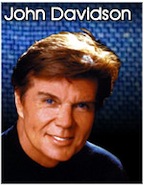
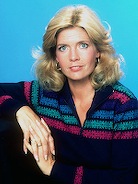
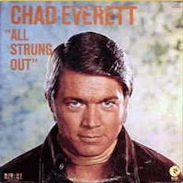
(Note to readers: In connection with CNBC's As Seen on TV (Wednesday, April 22nd, 8 p.m. central; repeated Sunday, April 26th, 9 p.m.), we're reprising this earlier look at the relative infancy of infomercials. Some things haven't changed. The economy was struggling then, too. But at least one Dallas TV station wasn't buying in at the time. That would be unheard of today. This article was originally published on Nov. 25, 1990.)
By ED BARK
It's 6:30 in the morning, and actor Chad Everett is telling Dallas-based KDFI (Channel 27) viewers about "an exciting homeopathic product" that may provide hope for the "hidden problem" of impotency.
The half-hour program, presented under the umbrella title of Super Stories, is sandwiched between a Highway Patrol rerun and Popeye cartoons. Everett, former star of television's Medical Center series, "interviews" guests and members of an enthusiastic studio audience, all of whom swear by ONCOR. Viewers later learn that the "easy to take" liquid is available for $49.95 -- your money back if not completely satisfied.
Everett and dozens of other celebrities are part of an explosion in program-length commercials also known as "infomercials." Most TV stations view them as welcome income during hours of the day when viewership is low and commercial time is difficult to sell.
"The rates you get from these guys are just so good that you can't say no," says Channel 27 program director Mark Lamberti. "They don't really bother me. I don't see any difference between them and paid religion, as long as they don't make any fraudulent claims."
New York-based Synchronal Marketing, Inc., which pushes products ranging from teeth whiteners to vegetable slicers, will buy $50 million worth of television time this year, says media director Jerry Baldwin. But product sales are expected to total $200 million, he says.
"Stations are hungry for business. The economy has hurt them," Baldwin says. "Right now we're running about 20 different programs.
One of Synchronal's current hit shows is Straight Talk, in which former Silver Spoons star Erin Gray touts a cellulite cure manufactured by the Anushka Institute. The self-proclaimed inventor of the product, who goes only by the name Anushka, says she was "devastated" by the onset of cellulite but became "the happiest woman on Earth" after perfecting a body contour gel with "deep, penetrating action."
"You can't tell what's going to sell," Baldwin says. "The cellulite show is going to be on the air two years in January."
About one in 10 shows is a hit, and the average life span is about six months, says Paul Clement, media supervisor of the Santa Monica-based William Television Time.
William Television, which places infomercials on stations around the country, has been in existence for three years. Clement, who joined the company in early 1989, says the number of employees has increased from eight to 45.
"My job is a lot of fun, but I just have to laugh at some of the shows that are put on," Clement says. "But I've put some of them on myself. That's my job.
Except for WFAA (Channel 8), all of the Dallas-Fort Worth area's commercial stations accept infomercials. Channel 27 uses them to fill two to three hours of its morning schedule. KDAF (Channel 33) regularly runs infomercials from 2 to 5 a.m. KTVT (Channel 11) competes against the networks' Saturday morning cartoon shows with three hours of infomercials. Network affiliate stations, such as CBS' KDFW (Channel 4) occasionally use them as "filler" on weekends. Infomercials also are staples on cable's Family Channel and USA Network.
Channel 8 general manager Dave Lane, who is doubling as acting general manager of KXTV-TV in Sacramento, Calif., says that Channel 8 aired infomercials "here and there" until about two years ago.
"We made a decision not to do it anymore," he says. "Some of these programs are positioned almost as legitimate news shows, and we thought that was pretty confusing."
Buff Parham, Channel 8's station manager, speaks more pointedly about infomercials. "They're a good example of air pollution," he says.
Channel 8 is the only one of five stations owned by A.H. Belo Corp. to discontinue infomercials. Belo's Sacramento station infrequently airs them, usually following afternoon sports events. Lane recalls receiving an offer to air an infomercial on KXTV following one of last year's World Series games, which ended in prime-time on the West Coast. The distribution was willing to pay $45,000.
"We turned it down. It sure was tempting, though," Lane says.
Jeff Rosser, Channel 4's general manager, says his station screens all infomercials before they are accepted.
"Many of them are programs that you wouldn't want to have on the air and still defend your (operating) license," he says. "There are a lot of get-rich-quick schemes out there."
The Federal Communications Commission, which rules on any license challenges, also is responsible for the rapid rise in infomercials. In 1985 the FCC removed restrictions on the length of commercials. Half-hour infomercials seemingly were on the air within minutes.
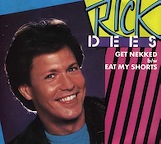
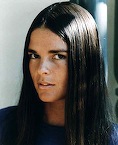
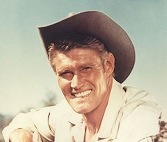
Most of the early programs alerted viewers to untold riches in real estate. Financial adviser Dave Del Dotto's version was one of the first to hire a celebrity spokesman. Singer/quiz show host John Davidson has been touting Del Dotto's $367 "Cash Flow System" for three years.
"We've realized there's a certain amount of value in having recognizable names and faces in the shows," Baldwin says.
Infomercials increasingly are luring celebrity spokespeople who haven't yet hit the has-been bin.
John Ritter sells the Where There's a Will There's an 'A' audio and videocassette seminars. He reminds viewers of "the horrible feeling of flunking a test or getting a paper full of red check marks."
Meredith Baxter-Birney, formerly of Family Ties, dumps her old makeup in a trash can at the beginning of an infomercial selling Victoria Jackson Cosmetics.
Two other celebrities were involved earlier this year in infomercials that ran into trouble with t he Texas attorney general's office in cooperation with the Federal Trade Commission. Scottsdale, Ariz.-based Twin Star Productions, Inc. was ordered to stop airing four infomercials advertising a baldness remedy, an impotency cure, a diet plan and the book How to Start Your Own Business By Doing Business With the Government.
Michael Reagan, son of former president Ronald Reagan, hosted the diet show, and actor Lyle Waggoner (The Carol Burnett Show, Wonder Woman) urged viewers to try an impotency remedy called Y-BRON. Twin Star agreed to pay $1.5 million to consumers who bought the products and were unable to obtain refunds.
"It's a boom industry," Synchronal's Baldwin says. "The problem with any industry is that there are people who have gotten into it that shouldn't have. They make claims that are not supportable."
Fearing further scrutiny, producers and distributors of the programs met in Washington, D.C. last month at the first convention of the National Infomercial Marketing Association.
U.S. Rep. Norman Sisisky (D-Va.), the most vocal congressional critic of infomercials, told the group that he was "skeptical" of NIMA's pledge to clean up the industry.
Barry Cutler, director of the FTC's bureau of consumer protection, said that the watchdog agency was still investigating complaints against major infomercial companies.
The National Association of Broadcasters, a lobbying arm of the broadcast industry, thus far has offered no resistance to infomercials. The organization's two-sentence position paper reads: "So long as this programming is truthful and not misleading and otherwise meets FCC regulations on proper sponsorship and identification, the NAB sees no reason for it to be restrained. The NAB continues to believe that individual broadcast stations and America's consumers remain the best judge about the value of these infomercials."
Stations airing infomercials now are careful to include disclaimers. Channel 33's advisory is typical: "The following is a fully sponsored program. The views expressed in this program do not necessarily reflect that (sic) of KDAF-TV or Fox Broadcasting, Inc."
Another disclaimer of sorts is a 30-day, money-back guarantee on products purchased.
"But as in any business, whether it be a retail outlet or wholesale, people aren't going to take the trouble to return a lot of these products," says Clement of William Television Time.
The impotency program hosted by Everett carries more disclaimers than most infomercials. Viewers first are warned, "Certain homeopathic experts may disagree with one or more of the conclusions reached by those appearing on this program, but nevertheless we believe that the same are based upon reliable and authoritative homeopathic authority."
At the end of the program, an announcer says that no one was paid for endorsing ONCOR. But a printed disclaimer reads, "Audience members have been compensated for their appearance."
Several audience members endorse ONCOR during "interviews" with Everett.
Subtitled Sexual Inadequacy: Hope for a Hidden Problem?, the program premiered in April and now airs on at least 300 stations, including Channels 27 and 39 in Dallas. Clement says it "hasn't been gangbusters. It hasn't made a ton of money, but it has been successful."
Many others haven't. the long-running Daily Mixer, which sold kitchen gadgets, became a "major bomb," Clement says, when actress Susan Anton was hired to host.
A program on how to make money selling baseball cards, titled Your Financial Field of Dreams, also was a flop, Clement says.
Identical products often are sold under different names on rival infomercials.
Now You're Cooking, hosted by Christopher Hewett of Mr. Belvedere fame, demonstrates a Super Snacker selling for $49.95. On the Making Life Easier infomercial, the same utensil at the same price is called the Snakmaster.
Synchronal's Baldwin says that the month between Thanksgiving and Christmas is not a particularly profitable time for the infomercial industry.
"People tend to want to go into a retail store to buy Christmas gifts," he says.
The peak selling period is just around the corner, however -- from January through March.
"We're always testing new products," Baldwin says. "Hopefully we'll have four or five new programs to start running the first of the year."
WHO'S SELLING WHAT
Christopher Hewett -- Super Snacker, Mr. Mix It
Rick Dees -- Time-Life Music Presents the Rock 'n' Roll Era
Chuck Connors -- MDR Fitness Tabs
Alex Karras, Barbi Benton -- Play the Piano Overnight Video System
John Ritter -- Where's There's A Will There's an 'A' video and audio cassette seminars
Chad Everett -- ONCOR impotency cure
Erin Gray -- Anushka Institute cellulite cure
Meredith Baxter-Birney, Ali MacGraw, Lisa Hartman -- Victoria Jackson Cosmetics
Glen Campbell -- Country 100 music collection
John Davidson -- Dave Del Dotto's Cash Flow System
Bob Seagren (former Olympic pole vaulter) --- How to Start Your Own Million Dollar Mail Order Business
Bright lights, big networks -- and sometimes bigger letdowns for D-FW glory-seekers
14/04/09 14:41
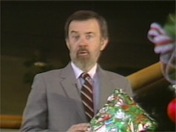
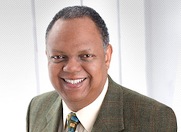
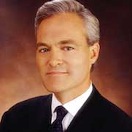
Note to readers: The recent death of former WFAA8 reporter Matt Quinn brought to mind a story written 20 years ago about D-FW reporters who achieved network ambitions. Some, such as Gary Reaves, didn't adapt to the travel and impersonal nature of the job. So he went from WFAA8 to CBS News and back again. But one of Reaves' old colleagues, Scott Pelley, left WFAA8 for a network post and has never looked back. Quinn came to WFAA8 from ABC News, whose regimen he didn't like at all. These and other stories are reprised here in an article that was first published on May 13, 1989.
By ED BARK
Former Channel 5 reporter Bob Schieffer, once a nobody at CBS News, remembers cherishing the compliment as though it were his birthright. His story on the U.S. military's arsenal of lobbyists had pleased the eminent Walter Cronkite, who said so in a brief memo.
"I tell you, to have Walter Cronkite praise you for a story was sort of like inheriting 10 million dollars," Schieffer says. "He was very sparing in his compliments."
Twenty years later, the torch is passed to CBS News newcomer Scott Pelley, a Channel 8 alumnus to whom Dan Rather warmed quickly. During orientation sessions in New York last month, "Dan sought me out and invited me into his office, and we had a nice, long heart-to-heart talk about the kinds of things CBS News stands for," Pelley says.
The next day Rather "came by and gave me a little gift. It was a book we had talk about."
It was an autographed copy of The Camera Never Blinks, Rather's account of his broadcasting career.
"And just today," Pelley continues, "he came by and told me he liked my story on Mexico. He knows how important it is, when you're new at the network, to hear from somebody like him. When a Dan Rather takes a moment to say, 'Saw the piece; you did a good job,' it makes all the difference in the world."
Schieffer, a long-running hit at CBS News, and Pelley, on the run since joining the network March 20, are among dozens of Dallas-Fort Worth television journalists who have made the quantum leap to network news. Some still revel in the glory; others have recoiled from the horror. The biggest plus is prestige, but the minuses sometimes seem to add up faster. Travel, office politics, travel, know-it-all New York producers, travel, etc.
Pelley, who waited five years for CBS to hire him, says he "bought a bottle of champagne, went home and said to my wife, 'Congratulate me. I have stepped off the precipice.' "
Although assigned to CBS' Dallas bureau, Pelley has ricocheted through airports and hotels during his first two months with the network. One typically frenetic period, from April 22-28, took him from New York to Atlanta to Dallas to Mexico City to Dallas to Austin and back to New York.
"It's more strenuous and hectic than I had anticipated," he says. "Folks here are just constantly on airplanes. But God help me, I love it."
Bob Elliott says he bought champagne, too, when he was hired from Dallas-based Channel 4 in 1983 to join NBC News' Houston bureau.
"It was the happiest day of my life when I went to the network," Elliott says. "We are trained and conditioned to think that this is the top of the profession."
But he learned to loathe a steady diet of disaster stories and hotel-hopping. In October 1986, he quit NBC and returned to his hometown of Portland, Maine. His spot in the Houston bureau was taken by former Channel 8 reporter Jane Peterson, who was dropped when the bureau closed a year later. She returned to her hometown of Minneapolis, hosted a public radio talk show and bounced back to the network level in March as a reporter for the new CNBC cable business channel, owned by NBC.
Elliott remains at home, as a feature reporter for NBC affiliate station WCSH-TV. He also teaches a journalism course -- "On the Trail of a TV News Story" -- at the University of Maine.
NBC News executives hired him because they liked the breezy style of his City Hall reporting for Channel 4 news, he says. "Then they immediately, from that day forward, tried to change it."
"The only news they seemed interested in doing, particularly in the Southwest, was disaster stuff. You end up just spinning your wheels, walking through other people's nightmares. You're thinking idealistically about First Amendment rights and the people's right to know. That's a bunch of bull. All you're going to give them is the latest disaster that happened in their territory."
Elliott covered a lot of territory. Houston was home base, but it became an outpost. the wandering reporter soon adapted a ritual. Before going to bed in a hotel, he placed the phone book within arm's reach. It was the only sure way to remember what city he was in the next morning.
"You have absolutely no personal life," Elliott says. "Sometimes 30 days would go by and I would never see Houston. I'd just buy new clothes on the road. A day off is spending a day in a hotel in Phoenix. Well, that's great, except you don't know anybody."
Matt Quinn, who quit ABC News after two trying years to join Channel 8 in 1980, remembers returning from a trip and discovering that he had been in Topeka, Kan. on network assignment. Hotel receipts verified the visit -- but what was he doing there? He still can't recall.
"That was really scary," Quinn says. "I suppose it's dumb to go a network and then not like the travel, but I simply hadn't realized that my reaction to it would be that negative."
Quinn also resented taking direction from producers in New York, whose editing of stories from afar often left him seething.
"They were not unhappy to see me go," he says. "I was a bigmouth. You can be a bigmouth at Channel 8 with Marty Haag. He doesn't rise from his chair in a puff of smoke and strike you dead."
Quinn is referring to Channel 8's news director since 1973. In the last five years, Haag has seen four of his reporters go directly to network news jobs and survive. A fifth, Mike Capps, returned to Channel 8 in 1987 after nine months as manager of ABC News' St. Louis bureau. Capps says he rejoined Channel 8 because he couldn't sell his house in Grand Prairie.
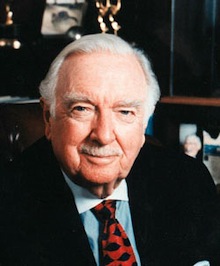
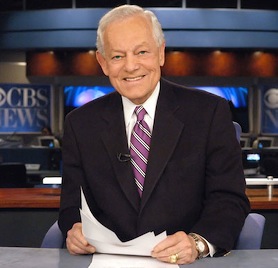
Channel 8 is widely viewed as demanding but fertile proving ground for would-be network correspondents. Says one former Channel 8 reporter: "If you survive at Channel 8, I would think a network job would be a vacation. It's very political and tough at the networks, but it's nothing like having Marty Haag stare at you every day and say, 'Where's your story?' "
CBS' Schieffer says of Haag, "He is an excellent news director, and that is just an excellent news department. I should add parenthetically that we have a fine CBS affiliate (Channel 4) in Dallas, but most of the people seem to want to stay there."
One who didn't stay -- renowned ABC reporter Sam Donaldson -- spent a year at Channel 4 as an announcer and occasional reader of the noon news in 1959-60. He sums up the experience in one sentence in his book, Hold On, Mr. President.
"I was glad to be back at work," Donaldson writes, "but after a year, decided I had learned as much as I was going to learn there."
CBS News has never hired a reporter directly from Channel 4. But the network has a growing Channel 8 alumni club. The three reporters recruited in the 1980s -- Pelley, Gary Reaves and Peter Van Sant -- all had stories on the CBS Evening News last week.
"They go because they have the wanderlust, and they want to get rich," Haag says, only half-jokingly. "We lose good people, but I think it's a foregone conclusion that the big fish are going to eat the small fish. It's a frustration, sure, but I'm happy for these people.
"They're not making that much more money than they can in local television, and some of them are being worked to death. But still, they're being seen by the entire country. And it's certainly a badge for people to say, 'Well, I've arrived.' "
For some it's a slow arrival. Reaves, who joined CBS News' Chicago bureau in 1986, says that no amount of local news training can prepare a reporter for the realities of network news.
" 'Humblng' doesn't even begin to cover it," he says. "It's funny, because you would think it would be this incredible boost to your ego, having been picked. But they sort of retrain you, and so that 's pretty humbling.
"In Dallas," he says, "I knew I was pleasing the people I worked for every day. Here, there's a half-dozen people in New York who go over every word you write and sort of by committee decide whether it's good enough. It seems like when you do get a story on, the stress that you go through is so much greater that it almost takes away the satisfaction . . . There have been many times when I have turned to my wife and asked, 'Why am I doing this?' "
Van Sant, based in CBS News' Atlanta bureau, says that staff reductions at all three networks have made it easier to get stories on the weekday evening newscasts. But that's not necessarily a plus. "You used to have to fight to get on the air," he says. "Now, you have to fight to stay off it. With the cutbacks, anyone with a pulse can get on.
"Most of us find ourselves being firemen all the time, just running from story to story without having time to work sources and develop more significant pieces."
Van Sant hopes to land saner work someday as a correspondent for one of CBS' three prime-time news magazine programs.
Former Channel 5 reporter Charles Murphy has no grand plans anymore. He opened ABC News' Dallas bureau in 1977, and, at age 60, expects to remain in that assignment until retirement. Murphy anchored Channel 5's coverage of the assassination of John F. Kennedy before an impressed NBC hired him the following year. He joined ABC News in 1968.
"It's not the golden age of the correspondent anymore," he says. "There aren't too many other old-timers like me still hacking away at it."
Murphy specializes in lighthearted features that often end World News Tonight telecasts. But 25 years at the network level doesn't add up to autonomy. He recently completed a story -- or so he thought -- on restaurants that flash-freeze food and send it in overnight mail to their customers. The story was sent back for an attitude adjustment.
"I was told it needed more sarcasm," Murphy says.
He complied.
